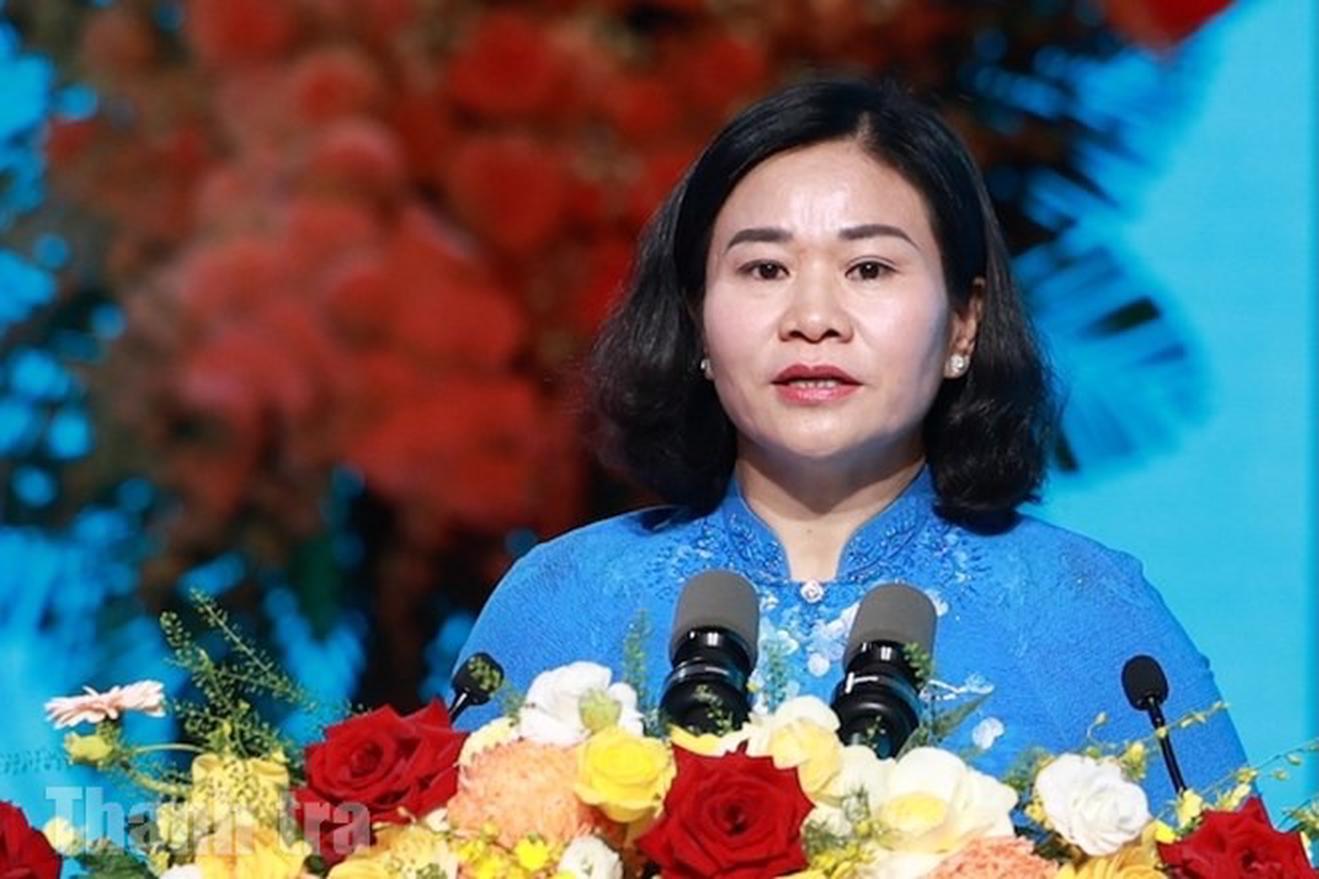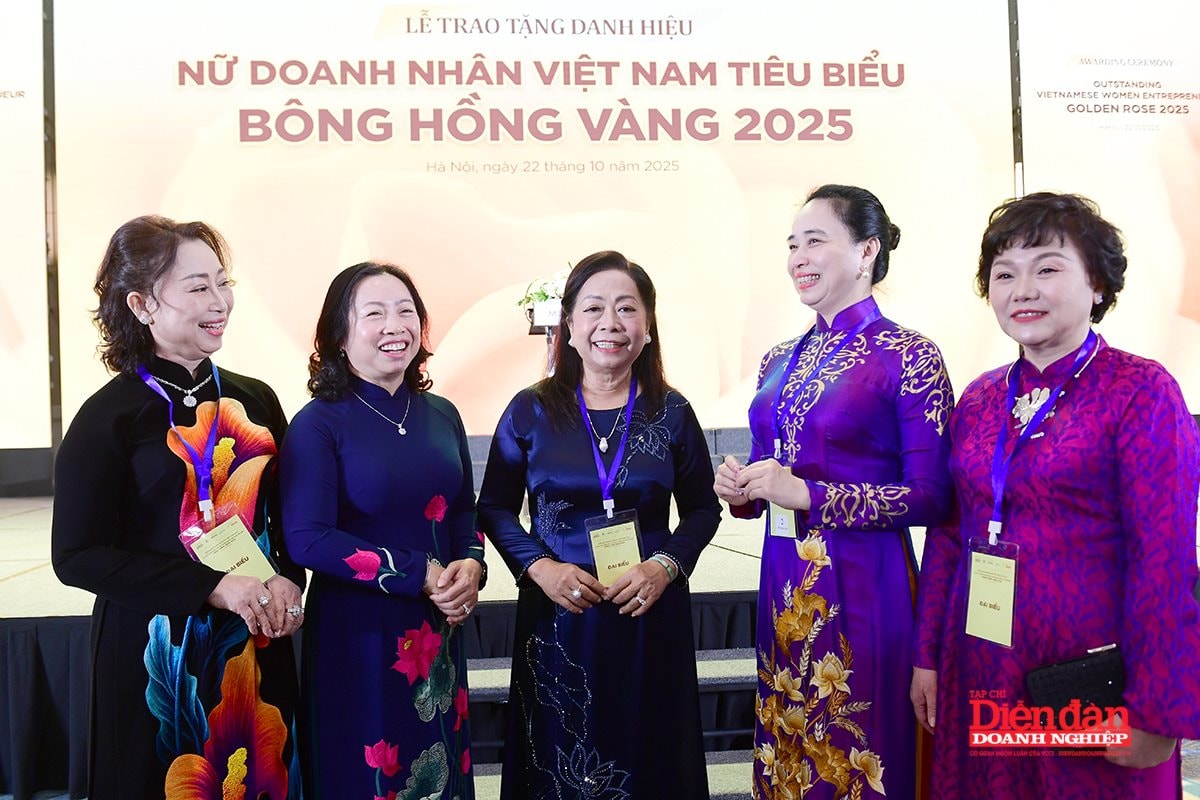Empowering the next generation of female entrepreneurs
Ms. Nguyen Thi Tuyen, Member of the Party Central Committee and President of the Vietnam Women's Union, shared in an interview with Doanh Nhan that Vietnamese female entrepreneurs in the new era are always confident, resilient, inventive, community-connected, and internationally integrated.

Ms. Nguyen Thi Tuyen, Member of the Party Central Committee and President of the Vietnam Women's Unio
Ms. Tuyen added that the Politburo's four pillars resolutions, notably Resolution No. 68/NQ-TW on the private sector development, serve as a foundation for the growth of private firms, particularly those held by female entrepreneurs.
What, in your opinion, should we do to ensure that the private sector maintains its position as "the most important driving force" and that national entrepreneurs and businesses have the best conditions for fast and sustainable development?
To really transform the private sector into the "most important driving force" of the Vietnamese economy, trust national enterprises and assign them crucial projects with high growth value, significant socioeconomic effect, and worldwide integration.
We require a coordinated plan from the government, enterprises, and the entire community, with three fundamental pillars: a favorable institutional framework, robust resources, and an innovative entrepreneurial spirit.
The growth of numerous private firms clearly indicates the need for a friendly, transparent, and stable policy environment for their long-term success.
With equal policies and vigorous competition, private firms will invest courageously in the long run, innovate, and benefit the economy.
What are significant changes in the role and position of Vietnamese female entrepreneurs in recent years?
In recent years, the role and position of Vietnamese female entrepreneurs has changed significantly, both in quantity and quality. Historically, women were identified with family responsibilities, and they seldom led enterprises. However, they have evolved into a powerful force in the business world, contributing greatly to the country's economy in a variety of ways.
In recent years, the number and quality of female entrepreneurs have expanded dramatically, establishing their presence in a variety of new businesses. According to the Vietnam Chamber of Commerce and Industry (VCCI), around 20-22% of women-led enterprises are now operational, making Vietnam one of the nations with the greatest percentage of female business owners in Southeast Asia.
While Vietnam was ranked 23rd in the 2020 Mastercard Index of Women Entrepreneurs (MIWE), out of 58 countries, the report did note the high participation of women in business ownership at 51%, suggesting a stronger structural role for women in the economy than in many other nations.

According to the VCCI, around 20-22% of women-led enterprises are now operational, making Vietnam one of the nations with the greatest percentage of female business owners in Southeast Asia.
Aside from the present advantages, are there any hurdles for female entrepreneurs, Madam?
Vietnamese female entrepreneurs are presently confronting several substantial hurdles as a result of deep international integration and strong digital transformation.
Barriers to market, funding, and technology access remain significant challenges. According to the VCCI, women-owned firms account for around 20% of all enterprises, although the majority are medium and small-sized, with limited financial resources and problems obtaining preferential financing and current technology. Many women-owned firms lack the necessary skills to engage in the global supply chain, such as e-commerce, digital marketing, and international standard certifications. This limitation exposes women-owned enterprises to falling behind in the age of digital transformation and economic integration.
Many female entrepreneurs' digital management and international integration skills have fallen behind new standards. Participation in the global value chain is further hampered by limits in international standards, foreign language proficiency, and market connection.
What initiatives has the Vietnam Women's Union conducted to encourage and promote the development of female entrepreneurs across the country?
The Vietnam Women's Union has implemented a number of programs, including the Prime Minister's Project to Support Women's Entrepreneurship in 2017-2025 (Project 939), as well as activities to improve access to finance through partnerships with the Vietnam Bank for Social Policies, Agribank, and microfinance institutions. Support actions are carried out in a diversified and simultaneous manner.
First, vigorously promote and mobilize to raise awareness among officials, party members, and the general public about the position and function of the business community.
Second, provide or coordinate training to improve business management skills, technology application, and digital transformation in women-owned businesses; promote connectivity and trade promotion; and assist women-owned businesses in engaging in e-commerce and the digital economy.
Third, suggest ways to strengthen economic policies, business laws, and legal provisions affecting female entrepreneurs' rights.
Fourth, coordinate and support the Vietnam Female Entrepreneurs Association in increasing the network of female entrepreneurs, encouraging the promotion of female entrepreneurs' roles and strengths in economic growth, and assisting women-owned firms and startups.
Given the increasingly fierce competition across economies, what do enterprises in general, and women-owned firms in particular, need to plan to not only "win on home ground" but also expand globally?
I believe that there are three key aspects that assist national enterprises in asserting their position in the face of global competition. First, develop an entrepreneurial spirit and integrative attitude. Secondly, improve competitiveness, technology, product quality, and management skills. Third, create Vietnamese brands with worldwide significance.
Over the last 30 years, the private sector has shown to play an important role in the country's growth, contributing considerably to GDP while also driving innovation, generating employment, and improving national competitiveness.
Vietnam needs national firms with the capacity to reach regional and international levels, lead important economic sectors, and create a strong ecosystem to assist the country in achieving sustainable growth.
As a member of the Steering Committee for the Outstanding Vietnamese Businesswoman Award - Golden Rose, could you clarify the significance of this award to the female entrepreneur community?
The "Outstanding Vietnamese Businesswoman - Golden Rose" award is given to female entrepreneurs who have achieved remarkable accomplishments in production and business while also contributing positively to the country's economic and social growth.
The award is crucial in recognizing and disseminating the significance of women's intelligence, resilience, and innovation in business. This is not just a reward of personal achievement but also a motivator, allowing female entrepreneurs to confidently innovate, digitally transform, and integrate worldwide, leading their enterprises towards long-term development alongside the country. The award helps to inspire young female entrepreneurs to create firms and earn honestly, while also encouraging women to participate in business.
Furthermore, the Golden Rose Award helps to raise awareness of women's roles and positions in economic growth, propagate the spirit of social responsibility, sustainable development, and environmental protection, and foster a humanistic business culture.
Thank you very much!








